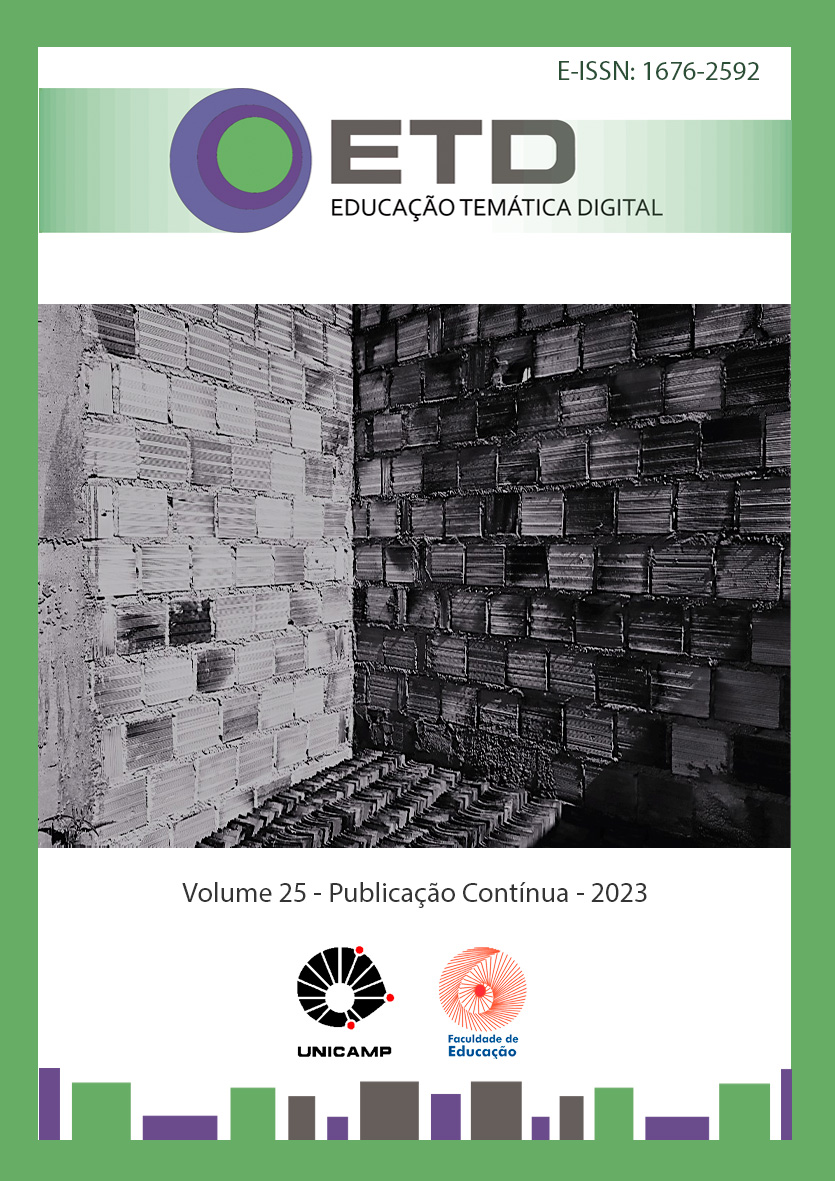Abstract
Reading is, exists, and happens in the form of a double invitation: an invitation to read and an invitation to talk about the reading; the idea of reading here referred does not depart from certain practices and theories of obligation or utilitarianism, being established as a way of invitation that comes from outside and at a distance from itself. There is a peculiar and also decisive way in this invitation: to be concise, it consists in calling attention to a world beyond ours and from each of us, savoring the language out of fast information and opinion mechanisms, withdrawing from itself in a type of exercise of otherness, focusing on times and territories distinct from the current ones and finding other ways of course and relation with the world and with life.
References
BARICCO, Alessandro. Los bárbaros. Ensayo sobre la mutación. Barcelona: Anagrama, 2008.
BARTHES, Rolland. El placer del texto y lección inaugural. Buenos Aires: Siglo XXI Editores, 2003.
BENJAMIN, Walter. Libro de los pasajes. Madrid: Akal, 2005.
BLANCHOT, Maurice. El espacio literario, citado por Jorge Larrosa en: Entre las lenguas. Lenguaje y educación después de Babel. Barcelona: Editorial Laertes, 2005.
CANFORA, Luciano. Libro y libertad. Madrid: Ediciones Siruela, 2017.
CARVER, Raymond. Menudo. En: Tres rosas amarillas. Barcelona: Anagrama, Ediciones Compactos, 1997.
COMPAGNON, Antoine. ¿Para qué sirve la literatura? Barcelona: Acantilado, 2013.
DERRIDA, Jacques. El fin del libro y el comienzo de la escritura. En: De la gramatología. México: Siglo XXI Editores, 2003.
FORD, Richard. Canadá. Barcelona: Anagrama, 2013.
HANDKE, Peter. Ensayo sobre un día logrado. Madrid: Alianza Editorial, 1990.
LARROSA, Jorge. Entre las lenguas. Lenguaje y educación después de Babel. Barcelona: Editorial Laertes, 2005.
MELOT, Michel. ¿Y cómo va “la muerte del libro”? Istor: Revista de Historia Internacional, 2007, núm. 31, pp. 7-26.
NIETZSCHE, Friedrich. Sobre el porvenir de nuestras escuelas. Barcelona: Maxi Tusquests, 2000.
MESCHONIC, Henri. La poética como crítica del sentido. Buenos Aires: Mármol-Izquierdo Editores, 2007.
NODIER, Charles. El amante de los libros. Madrid: Trama Editorial, 2015.
ORDINE, Nuccio. La utilidad de lo inútil. Manifiesto. Barcelona: Acantilado, 2013.
PENNAC, Daniel. Como una novela. Barcelona: Anagrama, 2017.
PESSOA, Fernando. Libro del desasosiego. Barcelona: Seix Barral, 1997.
SIRUELA, Jacobo. El sueño electrónico. Revista Turia, 2013, num. 108, pp. 20-24.
SKLIAR, Carlos. La inútil lectura. Madrid: Mármara Ediciones, 2019.
TODOROV, Tzvetan. Elogio de lo cotidiano. Barcelona: Galaxia Gutenberg, 2013.
WILLIAMS, John. Stoner. Tenerife: Ediciones Baile del Sol, 2016.
ZAGAJEWSKI, Adam. En defensa del fervor. Barcelona: Acantilado, 2005.

This work is licensed under a Creative Commons Attribution-NonCommercial-NoDerivatives 4.0 International License.
Copyright (c) 2023 ETD - Educação Temática Digital


